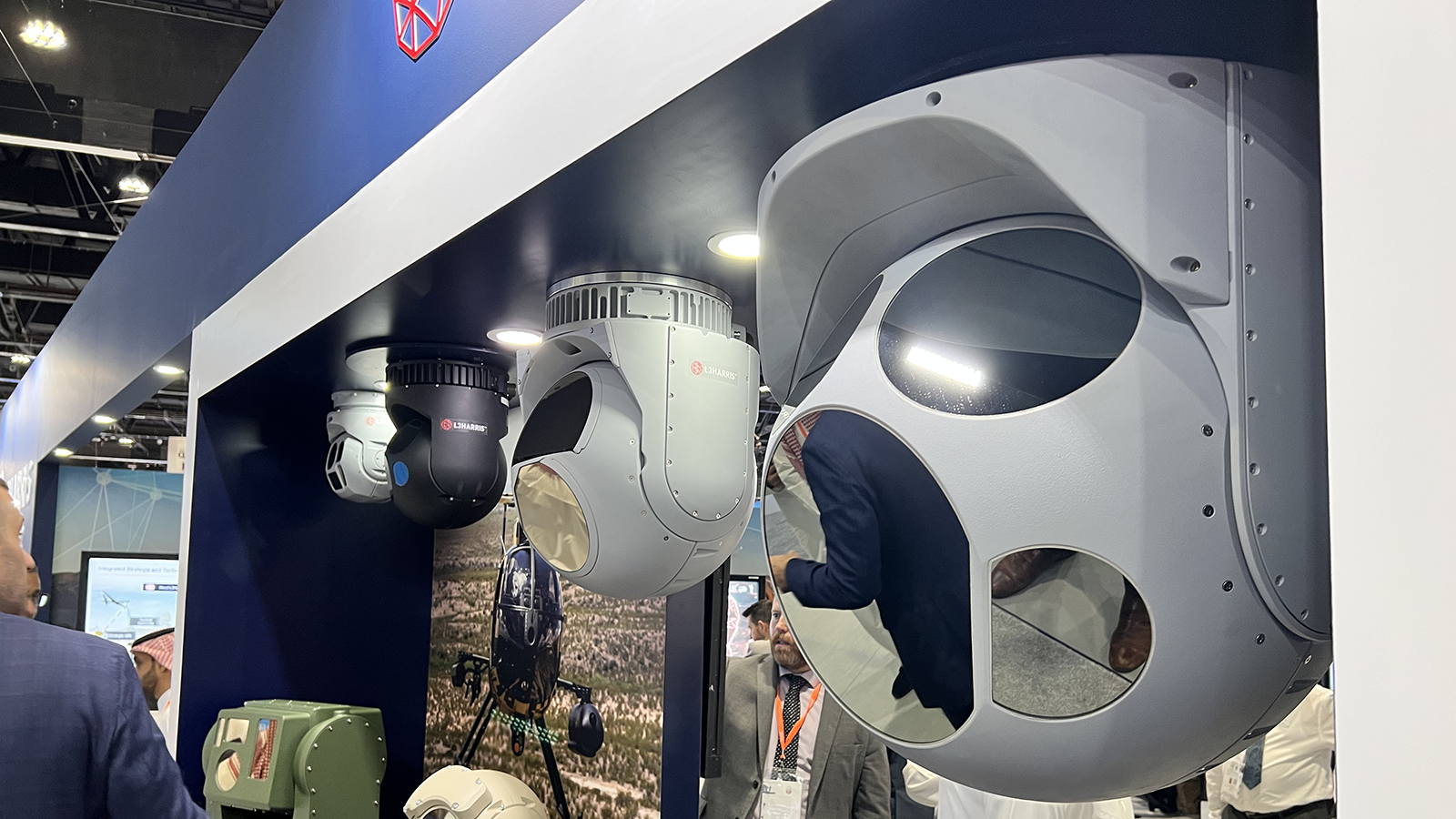
A number of ISR pods on display at the L3Harris booth at IDEX 2023. (Lee Ferran / Breaking Defense)
WASHINGTON — L3Harris is drawing a line in the sand against competing for fixed-price development contracts, the company’s chief executive officer emphasized today.
“We’re seeing more and more fixed-price development contracts coming out. We decided not to bid on two so far this year under the theory that ‘I’m not going to bid fixed-price on a development/production program, where we have not agreed on on the specs and such,’” L3Harris CEO Chris Kubasik said during the Bernstein Strategic Decisions Conference.
“I appreciate the DoD’s occasional attempt to get industry to bid and use the wrong contracting vehicle, and we will continue to pass on those opportunities” he added. “I think the industry as a whole is going to continue to no-bid these contracts until they use the right vehicles.”
Kubasik had previously disclosed during L3Harrs’s first quarter 2023 earnings call in April — where he projected the company would reply to the Federal Trade Commission’s second request for information on the Aerojet Rocketdyne purchase this month — that the company had passed on the two fixed-price contracts, though he did not disclose the programs in question.
During the April call, the executive predicted that dwindling bids could force the Pentagon to rethink its approach to the contracting scheme, concerns he said were raised directly with the top brass. “We will not be playing that game. I’ve elevated it to what I think is the highest levels within the Pentagon,” he told investors.
Fixed-price contracts are seen by advocates as a boon to the government, because cost increases during program development are largely borne by the contractor instead of the taxpayer. But industry has increasingly balked at the contracting mechanism especially in the wake of pandemic shocks, which have hammered supply chains and generated a tight labor market that has driven up salaries and sapped workers from production lines.
Defense giant Boeing in particular has struggled under the constraints of fixed-price contracts. With winning bids on platforms like the KC-46A tanker, T-7A training jet and the VC-25B Air Force One replacement, developmental woes and supply chain issues have at times forced the aerospace prime to absorb eye-watering losses, with the company disclosing $2.8 billion in charges in the third quarter of 2022 alone.
A “little over 70%” of L3Harris’s contracts are fixed-price, Kubasik said today, underscoring that inflation impacts prices of parts and the workforce needed to build them. Still, the executive said that those costs are factored in, and “we believe we flushed most of this through.” (During L3Harris’s fourth quarter earnings call for 2022, in January, Kubasik stated the company had not sought inflation relief on fixed-price contracts and had not asked for any.)
“As we go through to review and bid new work,” he continued, “it’s on… the executive team to say, ‘This is the cost of the new product. This is what we’re going to bid.’ If it’s fixed-price, and it’s development, we’re not going to bid it because we don’t want to take a loss. And the impact is on the buying power that our DoD has.”
from "price" - Google News https://ift.tt/DJlTNnM
via IFTTT
No comments:
Post a Comment